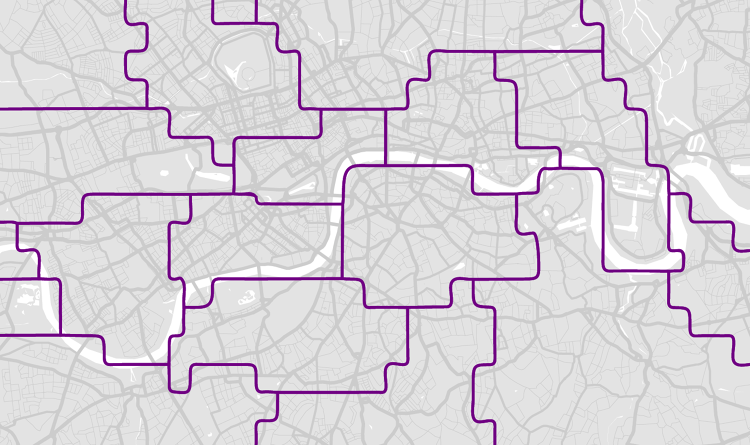Uber surge pricing: Researchers reverse-engineer app and find how to cheat controversial charging system
Study finds that five minutes is the best way to avoid extra costs — though going for a walk might reduce the price too

Your support helps us to tell the story
From reproductive rights to climate change to Big Tech, The Independent is on the ground when the story is developing. Whether it's investigating the financials of Elon Musk's pro-Trump PAC or producing our latest documentary, 'The A Word', which shines a light on the American women fighting for reproductive rights, we know how important it is to parse out the facts from the messaging.
At such a critical moment in US history, we need reporters on the ground. Your donation allows us to keep sending journalists to speak to both sides of the story.
The Independent is trusted by Americans across the entire political spectrum. And unlike many other quality news outlets, we choose not to lock Americans out of our reporting and analysis with paywalls. We believe quality journalism should be available to everyone, paid for by those who can afford it.
Your support makes all the difference.Researchers have reverse engineered Uber’s app, finding the best way to beat its controversial surge pricing charges.
The app often ramps up charges when there is higher than normal demand, multiplying the normal cost apparently to limit supply. The feature has proved controversial, with many arguing that the app should charge the same price at all times.
Researchers from Northeastern University say that the claims that the pricing system ensures that supply and demand are balanced is correct. But it also leads to unfair pricing for riders and drivers, they say, and could easily lead to the system being manipulated.
The algorithm that controls surge pricing has been kept secret. But the researchers modelled it by emulating 43 versions of the apps, generating data from a range of cities to understand how they were being modelled.
The researchers found that surge pricing tends to refresh every five minutes, so waiting for a few minutes could be the best way to get a cheaper price. But they also found that cities are divided up into different zones, so that crossing over the borders of those areas could lead to a reduction in the price.

Users tend to go for one of those options anyway, according to the researchers, meaning that the pricing can work out unfairly for drivers. Since people tend just to wait or move rather than paying the extra cost, drivers tend just to be left waiting or move themselves — people aren’t requesting rides from drivers, so they leave.
"Although we cannot say with certainty why surge has such a large, negative effect on demand, one possibility is that customers have learned that surges tend to have short duration, and thus they choose to wait for 5 minutes before requesting a ride," the researchers wrote. "Another possibility is that surging areas may be impacted by adverse traffic conditions, which prevents drivers from flocking to them."
The fact that the researchers had to do such work to find out what’s going on the app means that someone could easily manipulate the app, the researchers argue, since the algorithm that controls the process is mysterious.
"Uber's reliance on black-box algorithms makes their system more vulnerable to manipulations than other online marketplaces.The forces at play on markets like eBay and AirBnB are well understood: the supply of goods is transparent, and prices are set by competing individuals. In contrast, Uber does not provide data about supply and demand, and the pricing algorithm is opaque."
An Uber spokesperson told ProPublica that its research had shown that surge pricing worked.
Join our commenting forum
Join thought-provoking conversations, follow other Independent readers and see their replies
Comments